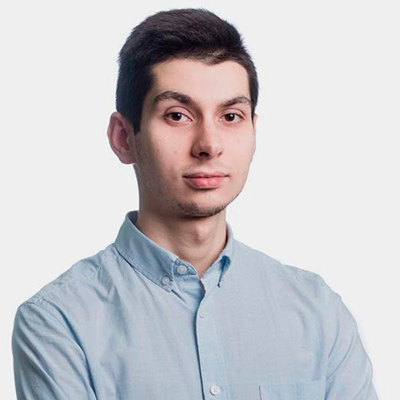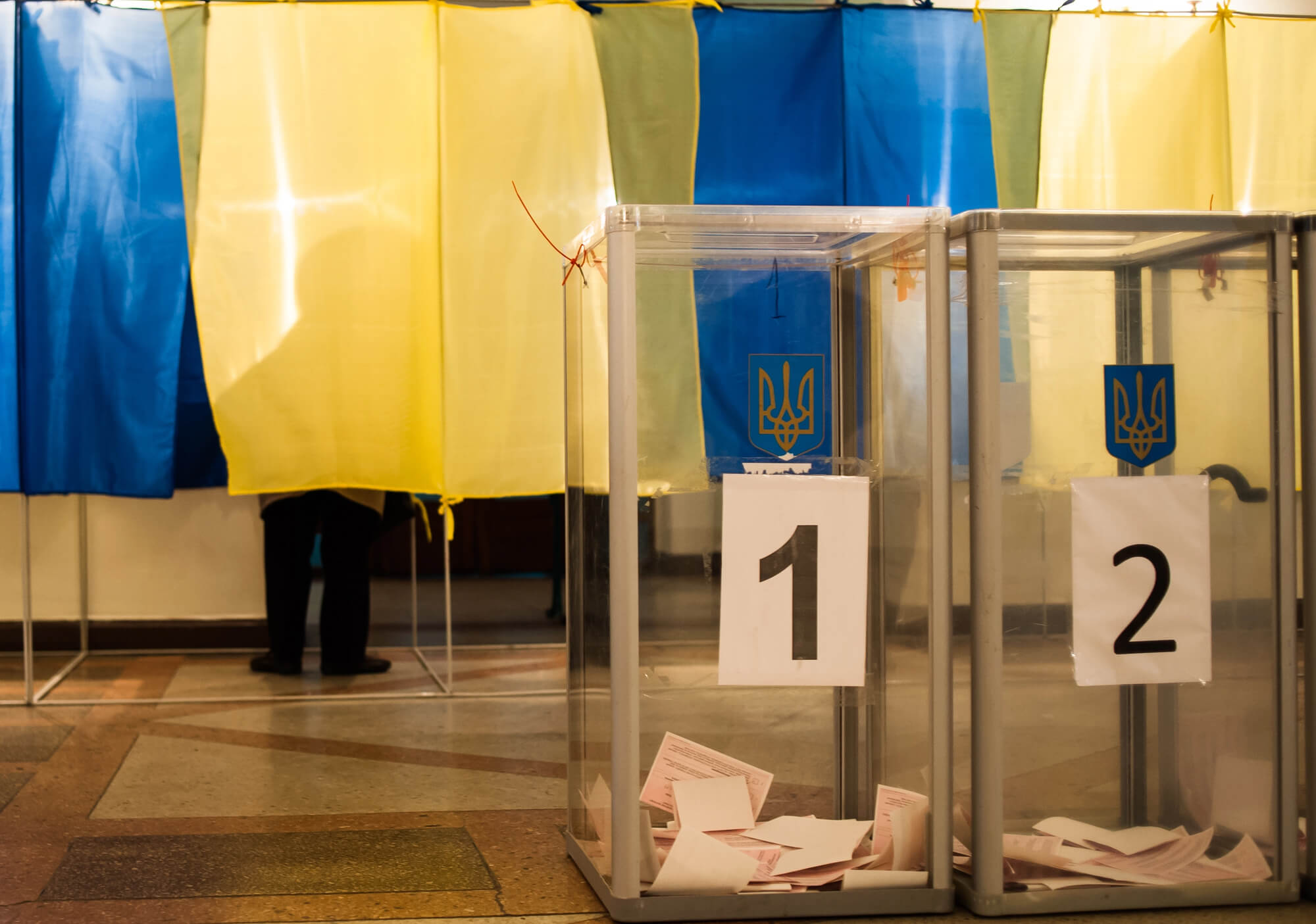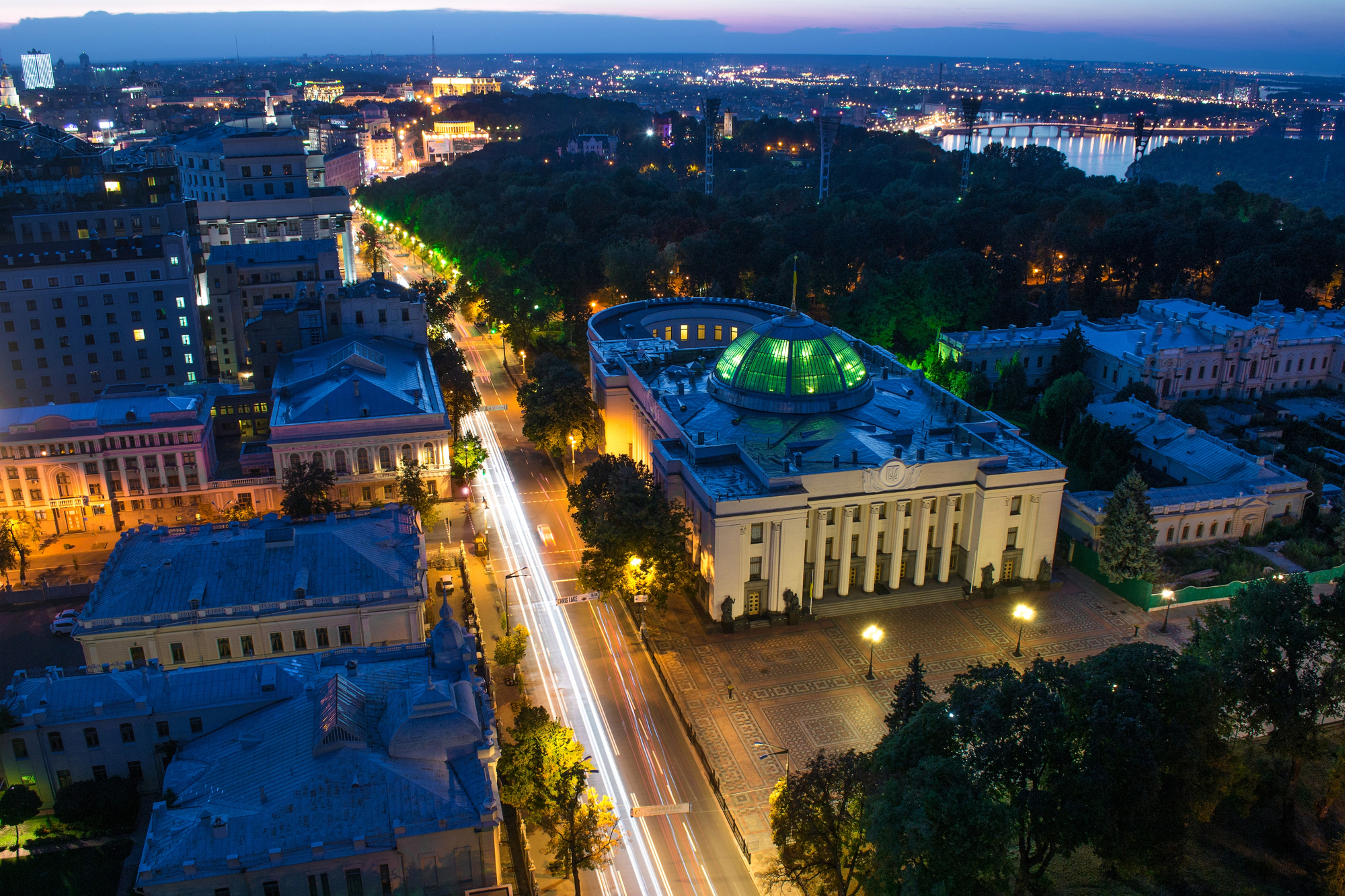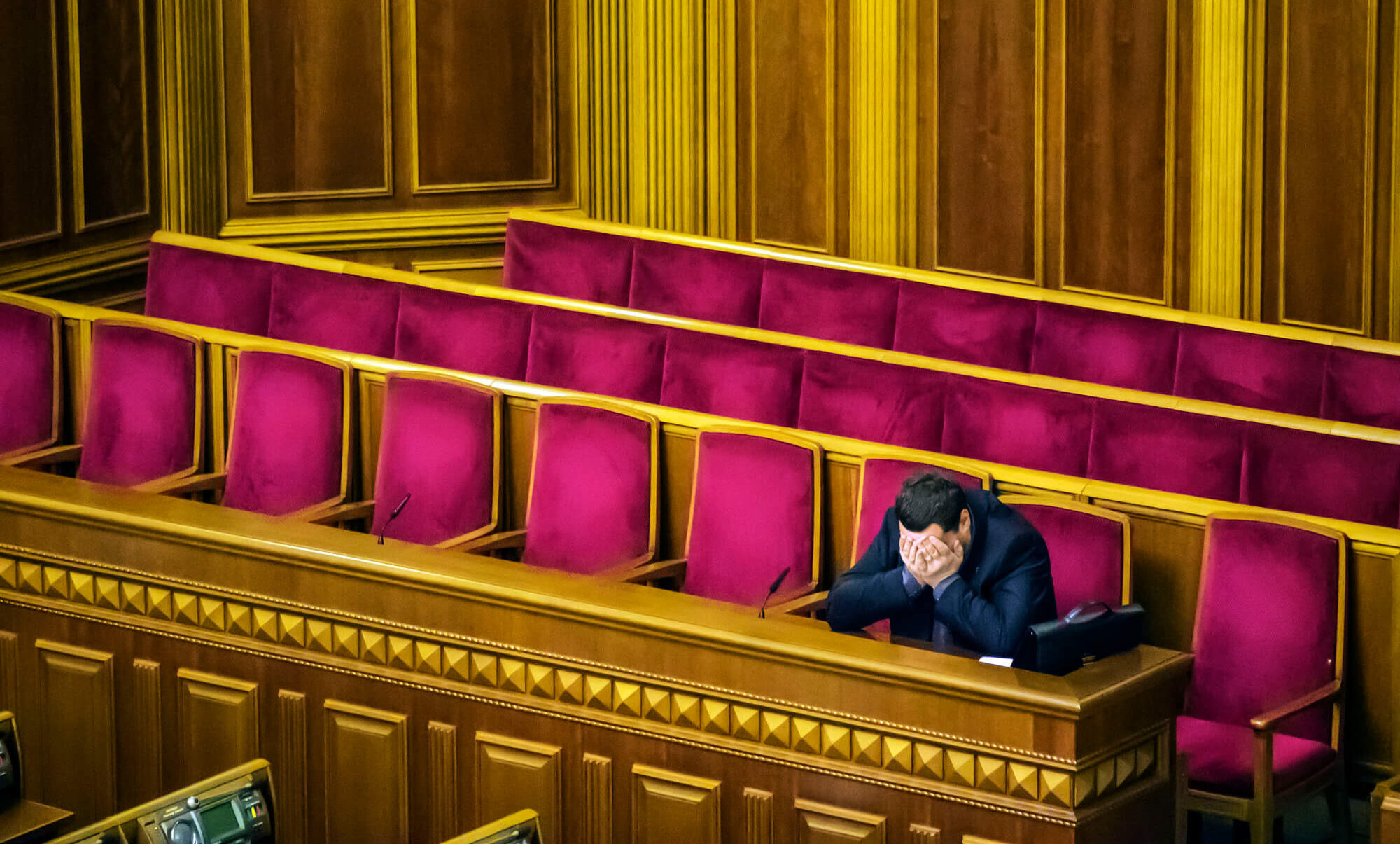Poroshenko`s political career began almost 20 years ago when he was elected to the Verkhovna Rada. Over the years, he was part of different political parties including The Party of Regions. Anton Marchuk provides an overviews of the President’s political life.
Petro Poroshenko’s political career started back in 1998 when he was elected to the Ukrainian parliament in the 12th electoral district in Vinnytsia. The “newcomer” was really lucky because he received just 58 votes more than his rival Volodymyr Skomarovskyi, a businessman from Vinnytsia. Skomarovskyi even tried to challenge the results in a court. Later, in 2005, Poroshenko’s rival was appointed as the Head of the State Customs Service. This position was supposedly included in “Poroshenko’s quota” after the Orange Revolution. Skomarovskyi resigned just one day before Poroshenko left the position of the Secretary of the State Security Council.
The Social Democratic Party of Ukraine (united) was the first party Poroshenko was linked with. The future president ranked 11 in the party’s electoral list. However, in one of his recent interviews, he said that he actually “was not a member of this party”. According to Poroshenko, he was offered to join the electoral list “on certain financial conditions”. At the same time, the information that Petro Poroshenko was not a member of the SDPU (u) seems not to be true, since he was a member of the politburo, the highest governing body of the party.
Topic of the week: The institution of the Presidency
Why is the Post-Soviet Presidential Institution Flawed (Mykhailo Minakov, President of Foundation for Good Politics, Tymofiy Mylovanov, Interim President of Kyiv School of Economics, Associated Professor at Pittsburgh University, co-founder of VoxUkraine)
What It Take to Pass a Law – a View From the Data (Dmytro Ostapchuk, VoxData Editor)
The SDPU (u) web site indicates that Petro Poroshenko was a member of the party’s governing body. According to the site, he left the parliamentary faction of the party at the end of February in 2000.
In 2000, Petro Poroshenko embarked on creating his own political project. On May 5, he created the left-center Party of Solidarity in Ukraine. This was preceded by the creation of the parliamentary group with the same name, led by Poroshenko.
However, the party existed independently just several months. As early as in November 2000, this political force joined the newly created Party of regional revival “Labor solidarity of Ukraine”. Together with Valentyn Landyk and Volodymyr Rybak, Poroshenko formed the trio of co-founders of the newly created organization. Yukhym Zvyahilsky, Leonid Chernovetskyi and Mykola Azarov were among other leaders of the party at the time.
As early as in March 2001, this political party rebranded itself under a more recognizable and well-known name – Party of Regions of Ukraine. Mykola Azarov became its new leader. The joint history of Poroshenko and “regional” proved to be a short-lived. At the beginning of 2001, he left Party of Regions and embarked on reanimating his “Solidarity” party.
On February 28, 2001, he created a new party “Solidarity”, led by Mykhailo Antoniuk. In November 2001, Petro Poroshenko was elected as the leader of the party. At the next parliamentary elections in 2002, Poroshenko and his party decided to join the electoral bloc of Viktor Yushchenko “Our Ukraine”. Petro Poroshenko led the electoral campaign of Our Ukraine. This decision did not look strange, as Poroshenko and Yushchenko had quite friendly relations at the time. Yushchenko was a godfather of Poroshenko’s daughter, while Poroshenko supported Yushchenko when he was a prime minister. Officially, Petro Poroshenko led Solidarity from 2001-2005, until he joined Our Ukraine.
Our Ukraine defined the longest period in the political career of the president. While a member of Our Ukraine, Poroshenko took part in the parliamentary elections in 2002 and the Orange Revolution in 2004. He ranked 33 in the 2006 electoral party list. Poroshenko decided not to participate in the early parliamentary elections in 2007. He wanted to prove that power was not a goal in itself for him.
Since 2006, Poroshenko distanced himself away from party activities. He headed the NBU council, served as the Minister of Foreign Affairs (Tynoshenko’s government) and as the Minister of Economic Development and Trade (Yanukovych’s government).
Despite not being a formal member of any party, in 2012 Poroshenko was seen at least once at the joint session of the Political Council of Party of Regions and its parliamentary faction, which raised some questions at the time.
In 2012, Poroshenko seized on the reintroduction of the majoritarian electoral element. He was elected as an MP in the 12th district in Vinnytsia. He was not nominated by any party and remained an independent MPs in the parliament.
In 2014, after becoming the president, Poroshenko called for early parliamentary elections. Poroshenko wanted to gain support for his initiatives in the parliament and started yet another reanimation of the political project “Solidarity”.
The previous homonymous political force stopped existing in 2013. Its registration certificate was annulled by the Ministry of Justice according to the Law on political parties because “Solidarity” had not contested the parliamentary elections for more than 10 years.
The newly elected president’s team found a solution quickly. It took over the party named “The National alliance for freedom and Ukrainian patriotism “NASTUP” and changed its name to the All-Ukrainian Union “Solidarity”, and then again in August 2014 to “Petro Poroshenko Bloc”. In this way, the president obtained his own party, created specifically for him.
Programs of the parties linked to Poroshenko can mostly be summarized as “We support all good things and reject all bad things”. Parties have declared the development of democracy and the desire to improve the well-being of the population as their goals. They promised to create good labor conditions for workers, increase the quality of free educational and medical services. They did not forget to mention the struggle against corruption. However, programs of all parties do list specific measures that are needed to achieve the declared goals. E. g. what role should the state play in reaching the economic well-being? Does the state have to redistribute income within the population, playing a decisive role in the economy, or does the state have to create as liberal conditions for the development of small and medium enterprises as possible?
The table briefly presents the programs of the parties that were linked to the incumbent president.
| Party→
Issue ↓ |
SDPU (u) (2000) | Our Ukraine (2006) | Party of Regions (2012) | PPB “Solidarity”(2014) |
| Joining NATO | Neutrality | Not determined | Neutrality | Not determined |
| European integration | “Integration in the European community” | Key direction | “Association with the EU” | Full EU membership is a priority |
| Relations with Russia | Strategic partnership with Russia | Not determined | Strategic partnership with Russia | Defense |
| Economic and tax policy | “The state is going to have a key role in creating a flourishing economy. It has to regulate markets effectively, create and streamline relevant institutions, legal structures, implement tax and financial programs aimed at freeing the private initiative” | “We will make science and innovative technologies the drivers of economy! The production of airplanes, ships, cars, military and space engineering will grow, stimulating the economy”, “Taxes will become bearable for business”; We will guarantee cheap loans for all those who wish to start their own business” | Tax holidays to IT and innovative projects for 10 years, lowering income tax rates to 16%; cheap bank loans to the national producers. Ukraine has to become a large exporter of food. | “The number of taxes has to be decreased, rates should be lowered, all offshores should be cut off”; “It is necessary to agree on the system of simplified taxation of the small and medium enterprises”; “Agriculture can become a driver of Ukrainian economy” |
| Humanitarian sphere | The state cannot abstain from actively participating in the cultural life | “Education, science, culture, spirituality will become key factors of national development and the well-being of the population” | Making the Russian language another official language. | Full guarantees of the rights of national minorities, i. a. to speak their language freely. |
| National security | Creating professional army | A professional contract-based army has to be created by 2010. | Efficient professional army, the cancellation of draft by January 1, 2014. | “The experience of the last months shows that Ukraine has to guarantee its defense on her own” |
| Other | “… realizing the social-democratic conception of social state, oriented towards the increase in the responsibility of the State for the quality of life of its citizens. Gradual restoration of social rights and simultaneous growth of civil, economic and political rights of an individual” | “MPs will lose immunity. Bureaucrats will report not only their incomes, but their expenses as well”; “Starting from 2006, the judicial branch will be reformed. Corruption in the judicial branch will be stopped, the trust of people in courts will be restored” | “A flourishing society will be created by securing the adequate level of civil freedoms and the efforts of the government to guarantee the security of the country and citizens”. | “In Ukraine, the principles of law abiding state and justice have to win. These principles require transparent and unambiguous laws. accessible, just, objective and competitive judiciary, irreversible punishment for crime, guarantees of key rights, limits to the interference of the state in the private and civil life” |
Attention
The author doesn`t work for, consult to, own shares in or receive funding from any company or organization that would benefit from this article, and have no relevant affiliations



